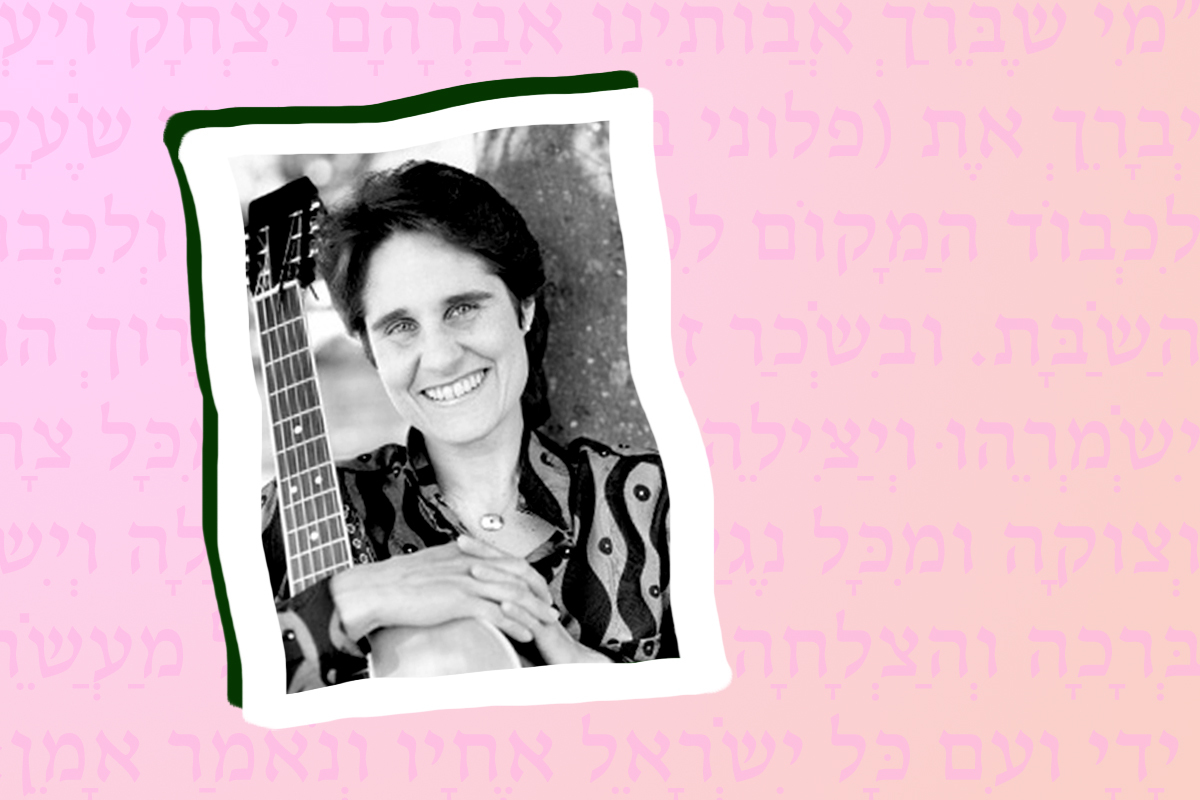When I was 5, my mom’s brother was diagnosed with a rare form of prostate cancer. Every Friday night, my family paused after Kiddush to say Mi Sheberach, the Jewish prayer for the sick, for him. I remember my dad chanting the English translation every week: “Our God and God of our ancestors, grant perfect healing –– a healing of body, mind, and soul –– to Jeremy Paster, and to all those who are ill. Blessed are you, source of all life, healing the sick.” My parents explained to me that this prayer asked God to make Uncle Jeremy better.
I still remember the day my mom picked me up from school and told me the sad news on our walk home: Uncle Jeremy’s doctors didn’t think he would get better. He was going to die. It had been about a year since his diagnosis, 52 weeks of Mi Sheberachs every Friday from my family. Still, even after getting this news, we offered up the same prayer every Friday night.
In kindergarten Hebrew school theology, prayer is cause and effect. We read picture books about biblical heroes talking to God, arguing with God, praying to God. And most importantly, God heard their questions and arguments and prayers, and sent responses back to earth. If Sarah, an old woman, could pray for a baby and have Isaac, if the sea could part for the Israelites trapped between Pharaoh’s army and the water, certainly God could help the doctors make my uncle’s cancer go away.
But 18 months after his diagnosis, my uncle died. My family flew to California to spend the last part of his life nearby. My mom, wrapped in the grief and decision-making that comes with watching a loved one leave this world, spent a lot of time at his apartment. My dad took me and my little sister on walks with my uncle’s dog. Time moved differently, even within the bounds of my elementary school aged perception. After my uncle’s death, we stayed in California a bit longer, attending memorial services.
When we got home, I watched my mom find comfort in Jewish ritual — saying Kaddish, tearing a shirt. But our first Friday night back home, for the first time in many months, there was no Mi Sheberach.
Naturally, I concluded that the Mi Sheberach prayer must not work. I held no resentment towards God for failing to answer our prayers. I decided that this must have been an example of something where grown-ups were mistaken, like not swimming after lunch. Being God seemed like a lot of work. Maybe Mi Sheberachs just didn’t make it onto the priority list.
A couple years later, my mom was diagnosed with breast cancer. At the time, I attended Jewish day school. Because of our daily morning prayers at school, I prayed more regularly when she was sick than I ever had in my life. But I never once said a Mi Sheberach for her. She got better anyway. Whatever God did with prayers, it seemed, these prayers for healing didn’t carry much weight one way or another.
As I’ve gotten older, my understanding of God and prayer have gotten more complex. I am able to find meaning in praying, but I see it as a way for humans to set intentions rather than as a customer feedback survey for God. Prayer is a space for me to set priorities, to dig into something greater than myself, to find the momentum to make the world a better place. For a long time, however, Mi Sheberach still never felt meaningful.
When I got to college, I found an amazing Jewish community. I started attending Kabbalat Shabbat services nearly every week. At school, our services are an electric blend of traditions, where customs and tunes from different Jewish communities come together. Friday night services are a way for me to find breathing space after a long week. They allow me to step outside of the constant whirring of my to-do list, the perfect space to find Shabbat. My freshman year, I found that some of the prayers and tunes were familiar, while others were new.
In my Kabbalat Shabbat services at school, we use Debbie Friedman’s adaptation of Mi Sheberach. I had heard it before at some point in my Jewish education, but had never adapted the prayer into my routine. For me, its framework changed my entire relationship with the Mi Sheberach. Her first verse asks that God “help us find the courage to make our lives a blessing.”
Unlike a traditional Mi Sheberach, Friedman centers humankind’s role in providing communal healing. There is so much that none of us can control about sickness and death. But if we work to “make our lives a blessing” to people who need healing, we can soften the degree of suffering.
There is a reason why the mitzvah to visit the sick is so important. Even if we cannot change what is happening inside of someone’s body, we can provide love, resources, support, and compassion. The second verse in Friedman’s version asks that God “Bless those in need of healing with r’fuah sh’leimah/The renewal of body, the renewal of spirit.” Here, we have the opportunity to acknowledge what we cannot control. But still, instead of asking for complete healing, we ask for renewal. Repair, wholeness, restoration, comfort. For the dying, perfect healing might not be possible. Renewal, on the other hand, feels within reach.
In this pandemic, I find myself continually turning back to Debbie Friedman’s Mi Sheberach. By pushing our interdependence to the forefront, it is highlighting the ways in which our actions can actively bless — or harm — the well being of others. By using this prayer, I don’t have to just passively wait for God to make this go away. It is a call towards a strengthening of humanity, because in order to find healing, we must help each other first.
Header Image design by Grace Yagel; image of Debbie Friedman via Wikimedia.



